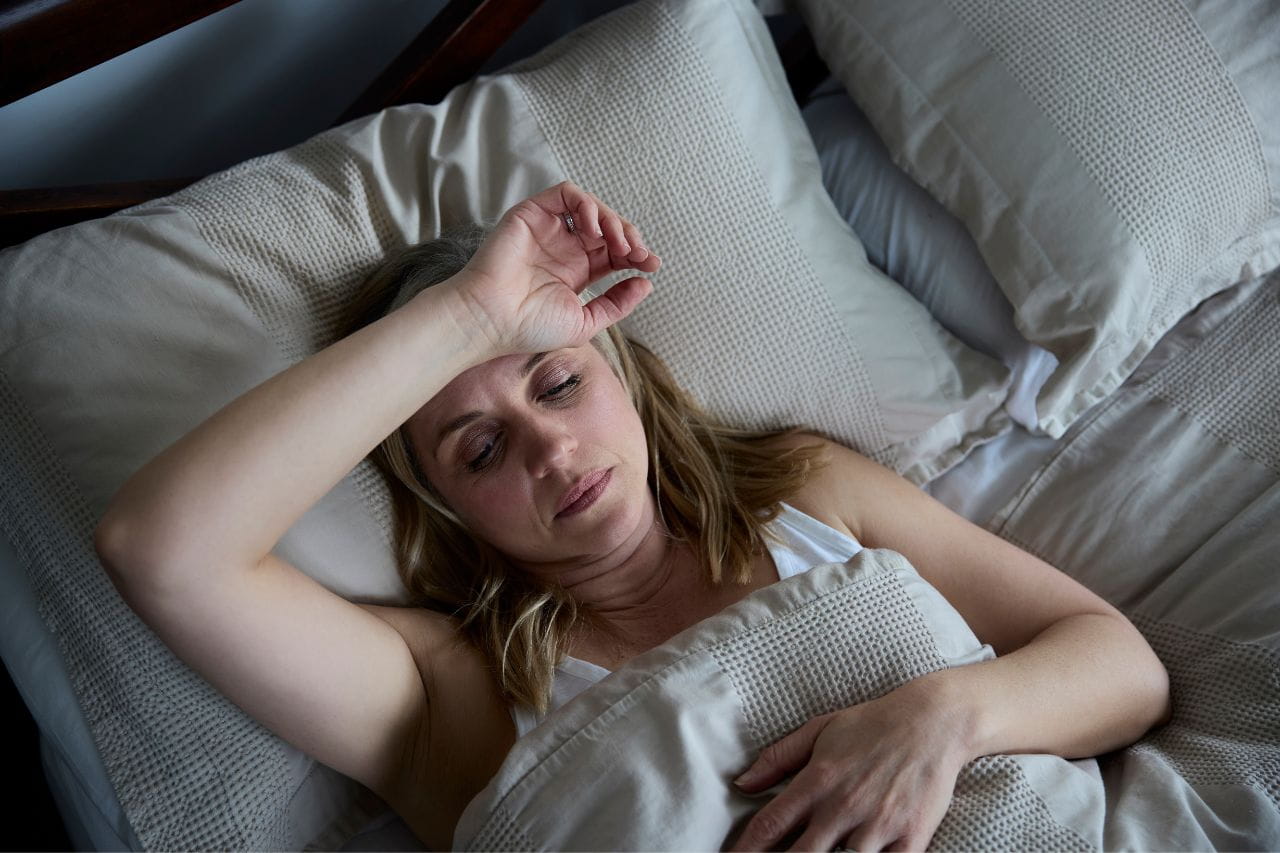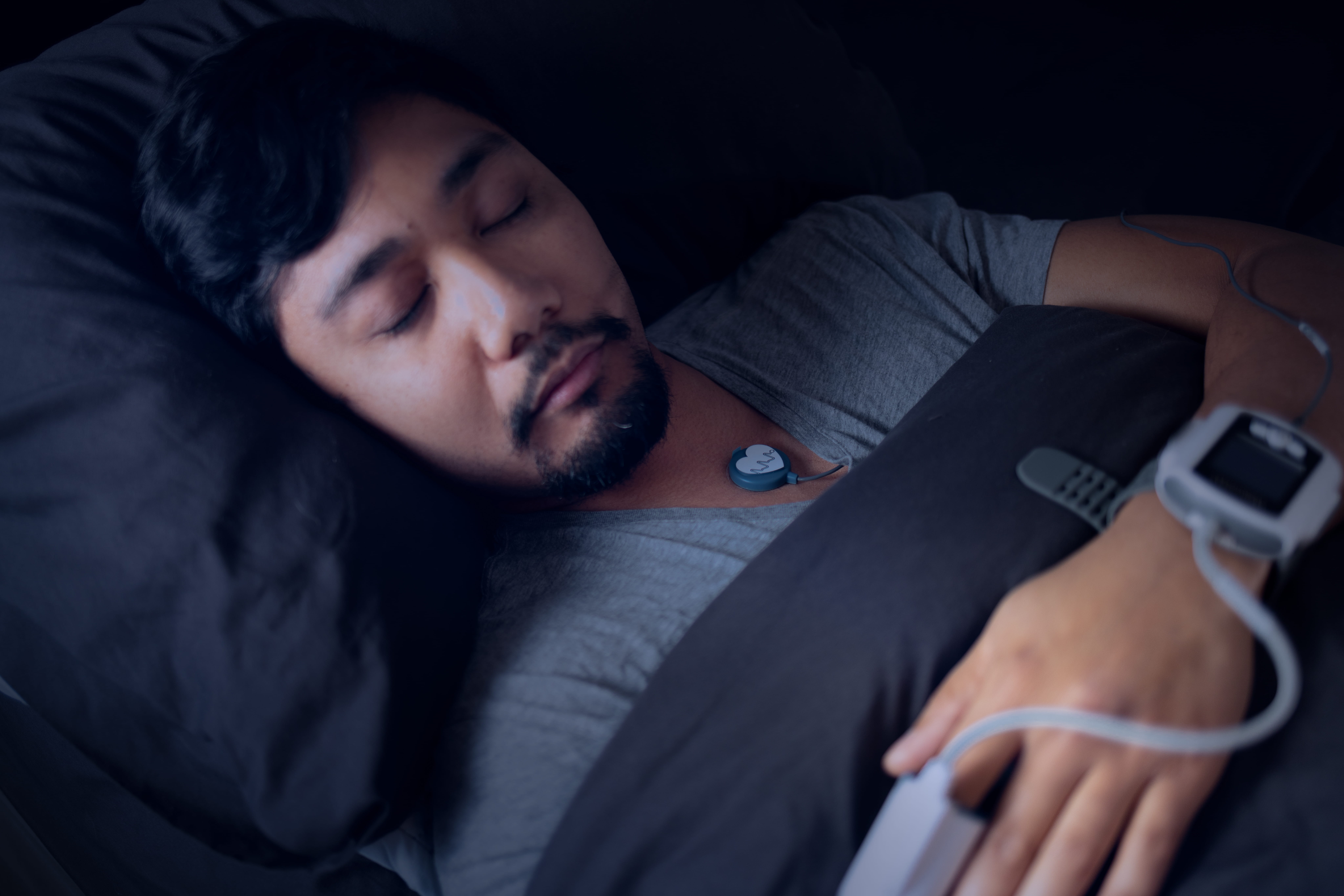Why Am I Sweating at Night?

You woke up sweating profusely and found yourself drenched in perspiration. It’s a very uncomfortable sensation and can be concerning, particularly when it happens to you for the first time.
Various environmental factors and medical conditions can be “night sweat” causes. While the occasional episode shouldn’t worry you, you should try to determine the cause and talk with your doctor, if appropriate, if you’re sweating in your sleep regularly.
What Causes Night Sweats?
If you’re waking up drenched in sweat regularly, it’s essential to determine why that’s happening. Some of the most common night sweat causes include:
Drinking alcohol before bed
Alcohol can have a relaxing or sedating effect. However, it can also raise your body temperature. This can lead to night sweats, especially if other factors below are present.
Sleepwear and sleep environment
Certain sleepwear and bedding materials can trap heat, causing cold sweats at night as your body seeks to cool itself. You may also experience night sweats if your bedroom is too warm.
Side effects of medication
Certain prescription medications can lead to sweating in your sleep. Your doctor or the literature that comes with the drug may prepare you for that possibility, but that’s not always the case.
Some of the prescription drugs that commonly cause night sweats include:
- Antidepressants
- Hypertension drugs
- Hormone therapy drugs
- Antiretrovirals
- Hypoglycemia medications
If you start a new medication and experience night sweats, tell your doctor. They may be able to change your dosage or prescribe a different medication to reduce the risk of that occurring.
Medical conditions
In some cases, night sweats are caused by medical conditions, including:
- Autoimmune disorders (such as rheumatoid arthritis)
- Obesity
- Heart disease
- HIV/AIDS
- Cancers (including leukemia, lymphoma, and prostate cancer)
- Depression
- Serious infections (endocarditis and tuberculosis)
- Hyperthyroidism (also known as an overactive thyroid)
- Sleep disorders (including obstructive sleep apnea)
While night sweats can result from a serious illness, you shouldn’t assume that’s the case. Instead, talk with your doctor, who can determine if you have a medical condition that requires treatment.
What Can I Do to Decrease Night Sweats?
If environmental factors are causing your night sweats, there are steps you can take to reduce their occurrence, including:
- Use lightweight bedding
- Wear breathable pajamas
- Uncover your feet and neck
- Keep your bedroom comfortably cool
If you wake up drenched in sweat, you can help your body cool down by:
- Drinking cold water
- Running cold water over your wrists
- Taking action to lower the temperature in your bedroom
Talk with Your Baptist Health Doctor About Night Sweats
Whether you wake up sweating around your neck and chest at night, as some people do, or in a full-body sweat, it can be alarming. However, it’s common for environmental factors to cause night sweats, so you shouldn’t stress yourself by assuming the worst.
Contact your Baptist Health primary care physician to discuss your symptoms. If you have other sleep-related issues besides night sweats, your doctor may refer you to our sleep medicine experts for further diagnosis and treatment.



